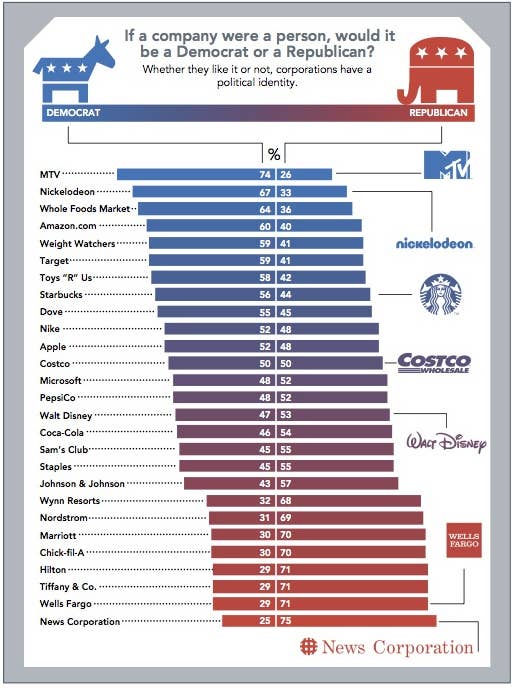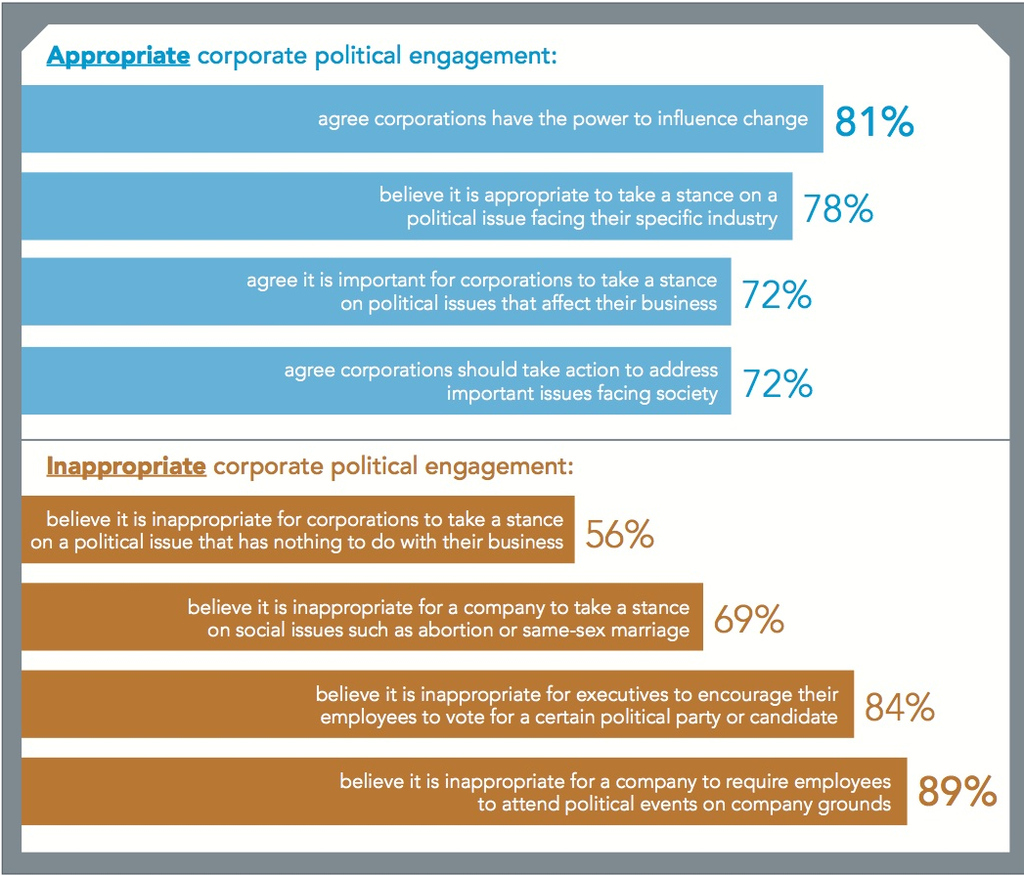
Corporations have more to lose than to gain by getting involved in politics — but many of them have clear political identities in the public eye anyway, according to a new survey by a Democratic consulting firm.
And a company's political identity can be shaped less by executives' statements and campaigns than by its place in the broader culture, according to the Global Strategy Group survey of 806 American adults. Whole Foods Markets, whose CEO campaigned against ObamaCare, remains perceived as one of the most Democratic companies in the country.
The survey found that more than half of Americans think it is wrong for corporations to meddle in politics that do not have much to do with their core business, and large majorities say they do not want companies taking positions on social issues like abortion and marriage, or encouraging workers to vote for a specific candidate.
The survey, conducted through an online panel of the sort increasingly used in market research, did find a few exceptions to the general rule about avoiding politics, in particular when a corporation can please one group while flying under its enemies' radar.
"If a statement is targeted in the right way and in tune with the right constituency, this can have a positive impact on a corporation's reputation," the report suggests. "Of all the corporate stances tested, Nordstrom reaped the greatest benefit with 42% of the public perceiving the corporation more favorably as a result of its stance on benefits for same-sex partners (compared to just 24% who viewed it less favorably)."
People surveyed also have little problem with corporations pushing directly for their own interests. A full 83% of the poll's respondent's, for instance, said that Coca-Cola's opposition to the ban on the sale of large sodas in New York City (couched in the language of "choice") was "appropriate."
The survey also suggests — though it's a bit hard to disentangle correlation and causation here — that the companies viewed as most political are also the least favorably viewed, as they've made themselves a group of enemies, as well as passionate admirers. News Corp., which owns Fox News, seems to find itself in that category; however, other companies the survey finds are unpopular are probably suffering for other reasons — Wells Fargo for its role in the mortgage crisis, for instance.

The survey's broader findings offer a road map to companies on which political activities can favor them — and, of course, include a tacit sales pitch for firms like the Global Strategy Group, which conducts polls and other research:

